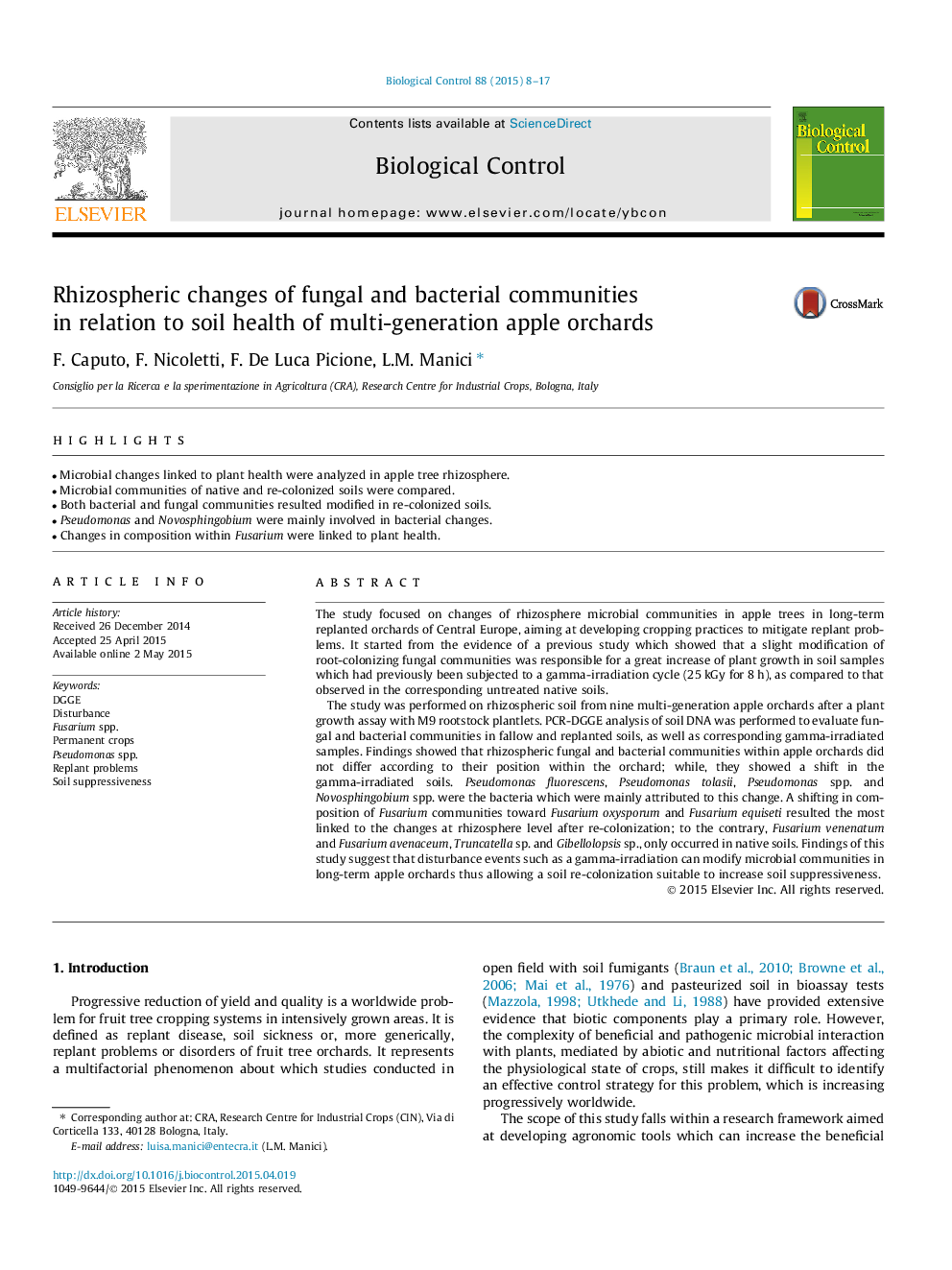| Article ID | Journal | Published Year | Pages | File Type |
|---|---|---|---|---|
| 4503779 | Biological Control | 2015 | 10 Pages |
•Microbial changes linked to plant health were analyzed in apple tree rhizosphere.•Microbial communities of native and re-colonized soils were compared.•Both bacterial and fungal communities resulted modified in re-colonized soils.•Pseudomonas and Novosphingobium were mainly involved in bacterial changes.•Changes in composition within Fusarium were linked to plant health.
The study focused on changes of rhizosphere microbial communities in apple trees in long-term replanted orchards of Central Europe, aiming at developing cropping practices to mitigate replant problems. It started from the evidence of a previous study which showed that a slight modification of root-colonizing fungal communities was responsible for a great increase of plant growth in soil samples which had previously been subjected to a gamma-irradiation cycle (25 kGy for 8 h), as compared to that observed in the corresponding untreated native soils.The study was performed on rhizospheric soil from nine multi-generation apple orchards after a plant growth assay with M9 rootstock plantlets. PCR-DGGE analysis of soil DNA was performed to evaluate fungal and bacterial communities in fallow and replanted soils, as well as corresponding gamma-irradiated samples. Findings showed that rhizospheric fungal and bacterial communities within apple orchards did not differ according to their position within the orchard; while, they showed a shift in the gamma-irradiated soils. Pseudomonas fluorescens, Pseudomonas tolasii, Pseudomonas spp. and Novosphingobium spp. were the bacteria which were mainly attributed to this change. A shifting in composition of Fusarium communities toward Fusarium oxysporum and Fusarium equiseti resulted the most linked to the changes at rhizosphere level after re-colonization; to the contrary, Fusarium venenatum and Fusarium avenaceum, Truncatella sp. and Gibellolopsis sp., only occurred in native soils. Findings of this study suggest that disturbance events such as a gamma-irradiation can modify microbial communities in long-term apple orchards thus allowing a soil re-colonization suitable to increase soil suppressiveness.
